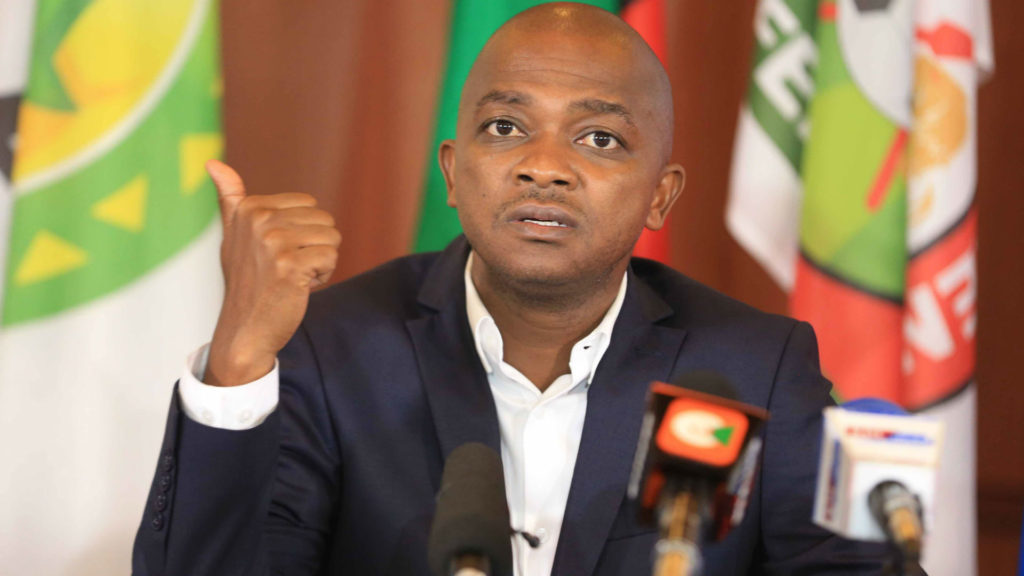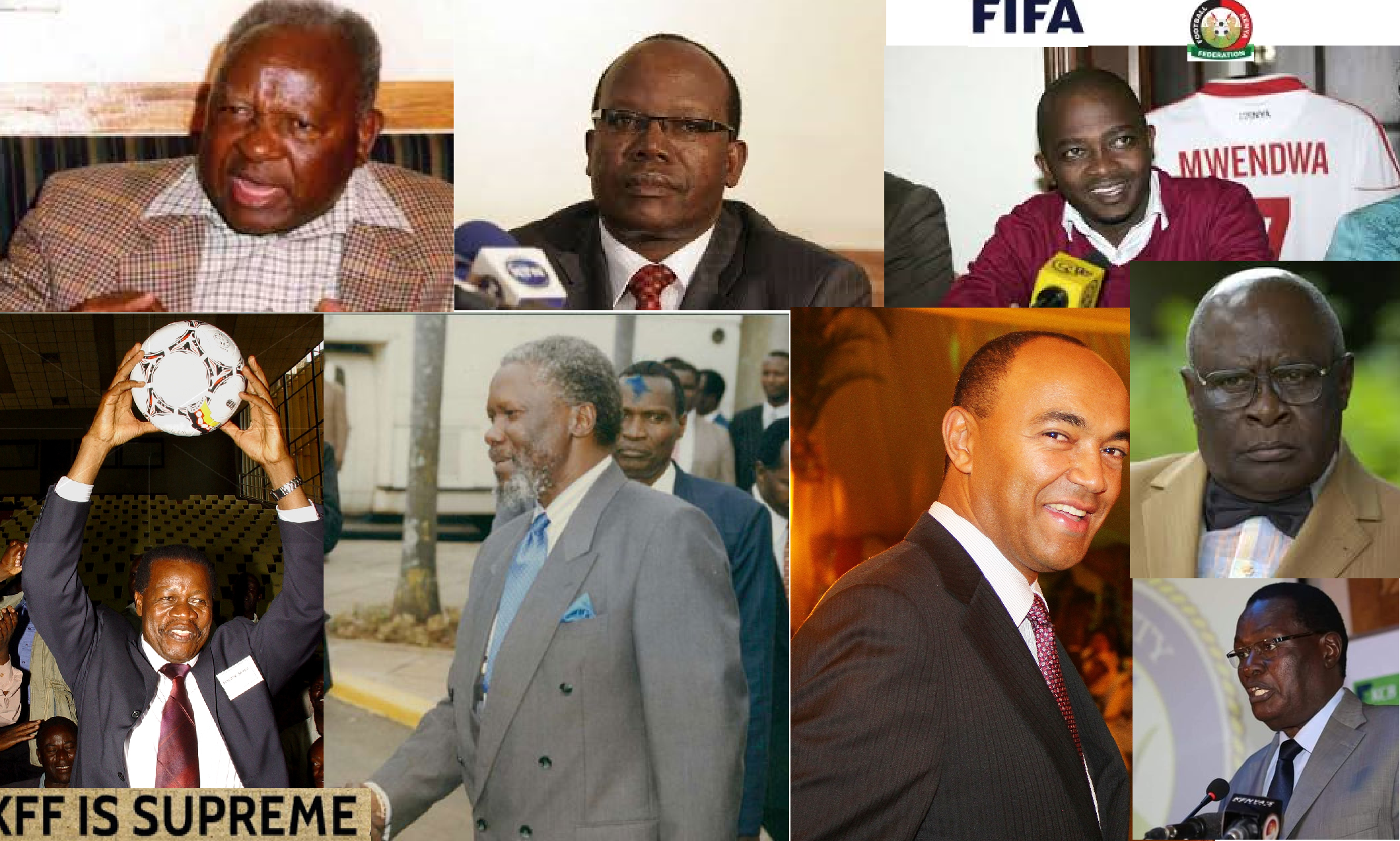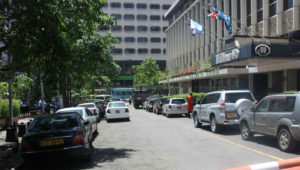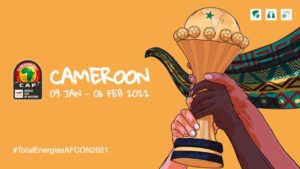Disclaimer: This article contains information from various public sources but borrows extensively from information on Kenya Net.
Football was introduced in Kenya at the beginning of the 20th century by British settlers. Kenyans naturally took to the sport, and it has remained Kenya’s most popular sport to date. In the first half of the 20th century, the Kenya national team competed in the what was then known as the Gossage Cup pitting the three East African countries: Kenya Uganda and Tanzania.
Formation
It was not until the early 1960s that the idea of forming a countrywide league was hatched by Jimmy McFarnell (convenor), Isaac Lugonzo, Williams Ngaah and Tony Pinto, among others. Isaac Lugonzo, who had been a renowned referee, was appointed Chairman of the newly formed Kenya Football Association (KFA) in 1963. In 1964 he left football to join politics and became Nairobi mayor in 1967. The move seems to have set a precedent of officials using football as a springboard to national politics.
Lugonzo’s successor was John Kasyoka, a top performer in various disciplines including athletics, tennis, table tennis, badminton and football. Not much is said about his reign at the football association which was disbanded in 1968 by the then Minister for Cooperatives and Social Services, Ronald Ngala. Another act that has come to haunt Kenyan football – government interference (or intervention). In this instance, the national league consisting of 10 teams, was temporarily suspended. Mr Kasyoka went on to chair the Kenya Olympic Association from 1971 to 1978.
Politics
In came Martin Shikuku, one of Kenya’s maverick politicians from the Luhya community. Shikuku was at the forefront of Kenya’s fight for independence and was a champion for the poor (working class) and self-declared “People’s Watchman”. Shikuku’s tenure in office was however riddled by controversy including accusations that were once brought to parliament that he openly favoured Abaluhya FC. Under Shikuku, Gor Mahia (predominantly Luo) almost went under as he repeatedly penalised the club. AFC Leopards (formerly Abaluhya FC) vs Gor Mahia FC is Kenya’s biggest derby pitting the Luhya against the Luo.
Surprisingly a Luhya Minister for Cooperatives and Social Services, Masinde Muliro, dissolved the Kenya Football Association appointing a committee led by Billy Martin as Chairman and Joab Omino as secretary. Joab Omino, a Luo, had also served as secretary under John Kasyoka.
Caretaker (or normalisation) committees have also become a mainstay in Kenya’s football scene. Whenever there are disputes in the running of the federation (or the big clubs, AFC Leopards and Gor Mahia) the government (or FIFA) would step in and appoint a caretaker committee.
In 1973, Billy Martin gave way to William Ngaah (one of the league founders), who beat one Kenneth Matiba in the elections. However, when fresh elections were held in 1974 Ngaah was ousted by one Dan Owino. It is also interesting that Mr Matiba, an entrepreneurial Kikuyu, after his defeat to Ngaah, had walked off KFA to form the Kenya Football Federation (KFF) with the support of 80 clubs.
The Visionary
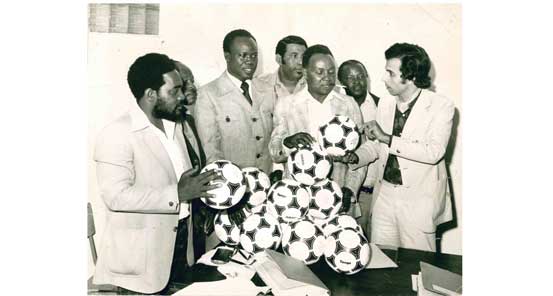
It is said that Matiba wanted to inject professionalism in the administration of football. He was a rich man, the first African executive chair of East African Breweries and also a significant shareholder. He also formed the third force in Kenya’s football, Kenya Breweries FC (now Tusker FC).
During his tenure, Kenyan football was rife with witchcraft. Matiba tried to fight this by inviting both AFC Leopard and Gor Mahia to use their best witchdoctors against the visiting Norwich City from England. Matiba’s point was proven as Norwich subjected both teams to heavy defeats.
In his bio, “Aiming High”: The Story of My Life, Matiba writes how he envisioned the training of future footballers by appealing to the German government for a coach. Help came in the name of tactician Bernhard Zgoll.
Matiba initially funded KFF by booking all stadiums in the country and locking out Football Association of Kenya. Still, to ensure its self-sustainability, he organised matches between AFC Leopards and Gor Mahia that guaranteed generous gate collections. It is rumoured that Kenya’s president then, Jomo Kenyatta, wondered why Matiba didn’t have the two rivals play weekly!
Many believe that if Matiba had stayed on as KFF chairman, Kenya would have qualified for the World Cup in the 80s. However, he quit in 1978 citing internal disagreements, to join politics where he became a member of parliament and subsequently a Cabinet Minister under Kenya’s second president, the late Daniel Toroitich Arap Moi.
Government Intervention.
Taking over from Matiba was Dan Owino. Dan Owino had led a group that split from Gor Mahia FC. His tenure was hence defined by his biased treatment of Kenya’s biggest club. His stint did not last long. The government stepped in when the Minister for Cooperatives and Social Services dissolved KFF due to poor administration and misappropriation of funds.
Following the dissolution of KFF, the running of football was temporarily taken over by the Kenya National Sports Council led by Chris Obure who had been a prominent footballer in the 1960s. When KFF was reinstated, Clement Gachanja was at the helm and ably managed the federation and the league until he was ousted by Job Omino in 1984. Gachanja’s administration was financially disciplined but was accused of lacking the vision to take the country’s football to the next level.
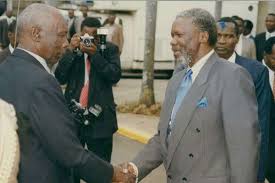
Omino, a Luo, served two stints as Chairman of KFF, 1984 to 1991 and 1993 to 1996. There had been an attempted coup in 1982, which was seen as a Luo affair led by among others, Raila Odinga. This was the beginning of a clamour against the one-party state in Kenya. The situation culminated in Kenya having its first multi-party general election in 1992. Omino’s tenures though hugely successful on the football front was frustrated by the government as he was deemed to be from the opposition.
Most notable was when Kenya was stripped of the rights to host the 1996 Africa Cup of Nations even after a successful bid led by Job Omino. The government failed to honour its commitment to build a third stadium, which was one of the requirements set out by CAF. A successful AFCON in Kenya would have been a massive win for the opposition.
In between Omino’s tenures (1992) saw a caretaker committee led by Mathew Adams Karauri (father to Sportpesa CEO Ronald Karauri) take Kenya to the Africa Cup of Nations where they performed dismally.
Professionalism
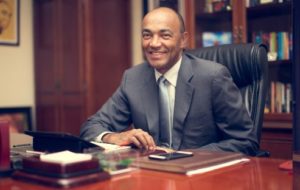 A young Kenyan by the name Peter Kenneth took over from Job Omino. For the first time, we had a professional from the private sector lead Kenyan football. And true to his word he injected not only professionalism but much-needed resources into the game, securing league sponsorships from Kenya Breweries and British American Tobacco. He was to be a one-term chairman and left in 1996. As it was later discovered, football was his springboard to national politics. He later became a Member of Parliament and even had a go at the presidency in 2007.
A young Kenyan by the name Peter Kenneth took over from Job Omino. For the first time, we had a professional from the private sector lead Kenyan football. And true to his word he injected not only professionalism but much-needed resources into the game, securing league sponsorships from Kenya Breweries and British American Tobacco. He was to be a one-term chairman and left in 1996. As it was later discovered, football was his springboard to national politics. He later became a Member of Parliament and even had a go at the presidency in 2007.
In 2000, another promising professional, Peter Kariuki, took over the reins at KFF. He had been an executive at Coca Cola Kenya Ltd, and many expected he would build on Kenneth’s work. This was not to be, and his stint as Chairman is one of the worst in Kenya’s football history. Blatant stealing from the federation’s coffers was rampant during his time. Gate collections from international matches would disappear with no serious attempt to investigate. The government stepped in and dissolved the federation only for the stubborn Kariuki to go to the courts to get reinstated.
Kariuki sacked one Kenya’s most celebrated national team coaches, German Reinhard Fabisch who made allegations that the federation was not supporting the national team enough. This was a Kenyan team that once managed a 1 – 1 draw against the newly crowned Olympic champions Super Eagles of Nigeria in front of a record crowd at the Moi International Sports Center, Kasarani.
FIFA Intervenes
In June 2004 the government again stepped in but this time FIFA saw this as government interference and Kenya was banned. Kenyans breathed a sigh of relief – “we are better off without international football, let’s get our house in order first”. The ban was not to last following an agreement between FIFA and the government. In the subsequent elections, Alfred Sambu won the chairmanship.

He was another case of failed expectations. Having led AFC Leopards as Chairman for several years sometimes using ‘personal’ finances, people expected a lot from him, but this was not to be. Some have blamed his weak leadership on his failing health then. He, however, went on to become a member of parliament. Perhaps football served its purpose?
As a result of the leadership vacuum occasioned by Sambu, factions arose within the federation as various officials fought for power. During one executive meeting in 2005, a group voted to suspend Alfred Sambu and installed Mohamed Hatimy and Dan Omino as Secretary-General. FIFA sided with the Sambu team, and he was reinstated in 2006 only to ousted again by Hatimy in 2007 at which point he left the football scene and joined national politics.
Football Kenya Limited
Hatimy was appointed by FIFA to lead a caretaker committee that would oversee the elections. However, at this point, there was chaos as another government-supported faction led by a one-time KFF Secretary-General Sam Nyamweya organised a parallel Special General Meeting (SGM). Nyamweya was elected Chairman of KFF, duly recognised by the government. Hatimy formed a company Football Kenya Limited which had the blessings of FIFA throwing the country’s football and league into disarray.
Football Kenya Federation
Sam Nyamweya stuck with KFF and was able to convince a good number of clubs including Shabana from his native Kisii and at one point a struggling AFC Leopards to join him. The chaos went on for some time. The factions were regulars in court corridors, and even at the Swiss-based Court of Arbitration for Sport (CAS). The situation persisted until FIFA ordered a unified election in 2011. Sam Nyamweya won the election beating Hussein Mohamed to become Chairman of the federation now called Football Kenya Federation (FKF).
FKF and KPL
Nyamweya though a seasoned businessman and supposed football enthusiast, ran the federation in a shambolic manner. He clashed with sponsors and other stakeholders as he fought to have control of football in the country.
Amidst the chaos that started early in the century, Bob Munro, a Canadian-born Kenyan and Chairman of Mathare United FC led other top club chairs to form the Kenya Premier League in 2003.
The Kenyan Premier League Ltd (KPL) is a private company incorporated in October 2003 under the Companies Act of Kenya. The KPL is wholly owned and managed by the eighteen Premier League clubs. The KPL is affiliated to the Football Kenya Federation (FKF), which is also a KPL Special shareholder and voting member of the KPL Board of Directors.
The goal was to run a league that would be shielded from the politics of the day to attract sponsors and media owners, some of whom had been knocking on the federation’s doors. Meanwhile, Uncle Sam, as he was known, set out to bring the African Cup of Nations (AFCON) to Kenya. I documented how that transpired in an earlier blog post and also touch on the state of the federation then.
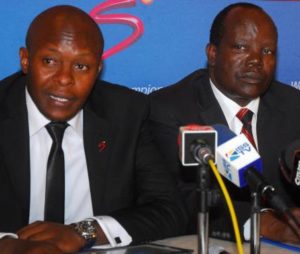
In short, CAF having tamed our ambitions, Kenya won the bid but failed to host the African Nations Championship (CHAN) 2017, much to the ‘temporary’ disappointment of the football fraternity and a significant loss to the country.
Back to the FKF/KPL conundrum. You realise that this model is borrowed from Europe as a strategy to enhance commercialisation and KPL scored a quick one in 2014 when SuperSport, a South African media company, chose to sponsor the league as part of their quest to capture the African football market. Things looked to be heading in the right direction at least for the premier league players who were almost guaranteed some income.
However, the relationship between FKF and KPL was not a comfortable one with Sam Nyamweya effectively locked out of the lucrative deal. He wanted in. Uncle Sam found himself battling on many fronts with elections coming in 2016 while at the same time working to ensure Kenya’s successful bid to host CHAN was fulfilled. Too much for one man.
The Strategist
Lurking in the shadows was one Nick Mwendwa, a young successful IT entrepreneur with grand ambitions for Kenyan football. Besides running his IT company, Nick’s side hustle was supporting the FIFA Transfer Management System at the FKF office under Mr Nyamweya’s wing. He was also running (or funding) Kariobangi Sharks a second-tier football club with matching ambitions. The shrill-voiced easy-going Mwendwa set his eyes on ousting his boss in the 2016 elections. And he seemed to have planned his moves to the letter.
Listening to Nick Mwendwa’s campaign videos, it was evident that the man had a strategy. It was refreshing to hear about his plans apart from the fact that sports betting was one of his critical pillars in supporting the growth of football. He had facts and figures and a little more. He had also played his politics well outsmarting Nyamweya and other industry stalwarts like the Gor Mahia chairman Ambrose Rachier. Come election time in February 2016, Mr Nick Mwendwa was the clear favourite.
In a subsequent article, I will focus on Nick Mwendwa’s presidency.
